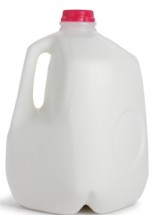 Have you ever wondered what happens to that plastic bottle you’re throwing away? True, some of them will end up in a landfill but in many cases, it will never reach the landfill. Rather it will be separated from the rest of your trash and sent on its way to another purpose; perhaps a surprising purpose. In fact, it is a good possibility that the carpet you walk on, the sweater you’re wearing, the bag you take to the grocery store and a host of other products, just may have once been those plastic bottles you threw away last year.
Have you ever wondered what happens to that plastic bottle you’re throwing away? True, some of them will end up in a landfill but in many cases, it will never reach the landfill. Rather it will be separated from the rest of your trash and sent on its way to another purpose; perhaps a surprising purpose. In fact, it is a good possibility that the carpet you walk on, the sweater you’re wearing, the bag you take to the grocery store and a host of other products, just may have once been those plastic bottles you threw away last year.
Water, soda, dish washing liquid and various other plastic bottles we all use on a daily basis are made from a plastic compound called Polyethylene Teraphthalate; or PET. And all such PET bottles have a multitude of uses that many do not realize. However, before any of those other products can be manufactured from our discarded bottles, they must go through an elaborate process of sorting, washing, shredding, washing again in some cases, drying and granulating. And there are numerous methods to process the plastic based largely on the facility doing the processing.
A typical process to reclaim discarded bottles would be first to sort them based on color and sometimes on size. Once sorted, they need to be washed, however; washing them while in one piece is not the most advantageous method. Therefore, to facilitate the washing process, the bottles are likely shred into smaller pieces. A number of plastic shredders and plastic grinders can be used to do the job, such as those manufactured by Jordan Reduction Solutions. They make a wide variety of shredders to break down whole plastic and PET containers into smaller sizes that can then be sent to a wash station. Check out some of the videos on plastic shredding.
Once the bottles have been shred down to a size suitable for washing, they are still not yet suitable for processing into other goods. After shredding, the PET chips have to be washed to remove residue, labels and other contaminants. Once clean the PET chips are then ready for reducing to smaller particles called flake. Flake is normally produced in another size reduction machine called a granulator. A granulator is significantly different than a shredder. A shredder runs at a slow speed and is designed to produce a chip of various irregular sizes suitable to be washed. The granulator is a higher speed machine designed to produce a flake of specific size suitable for recycling into many of the products listed above. Here’s a good example of the type of granulator used in this application.
After the final granulation process the material may once again be washed and dried, however; at this point, it is ready for its semi-final destination. That destination being hundreds of manufacturers ready to receive the flake and turn it into the thousands of recycled products we use every day.